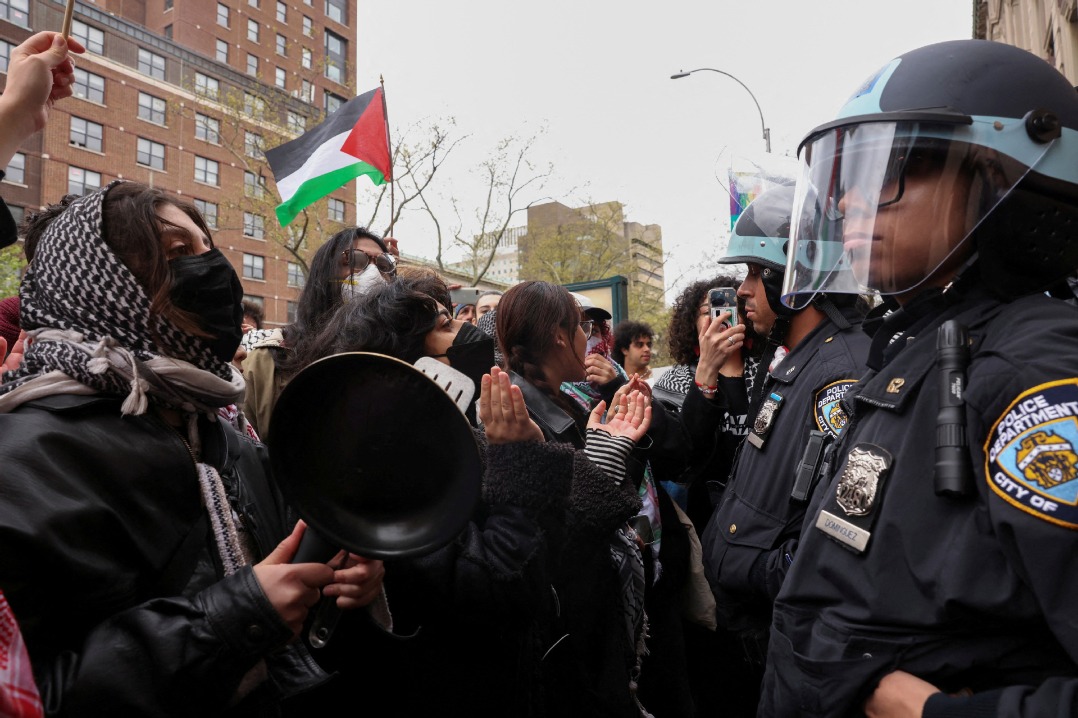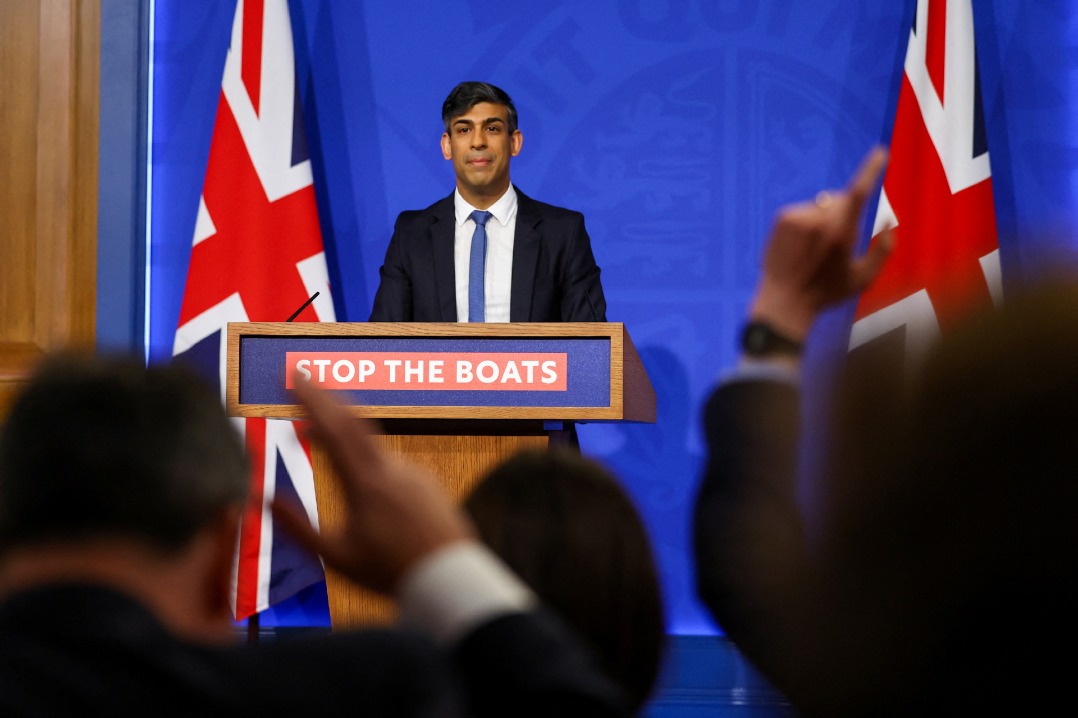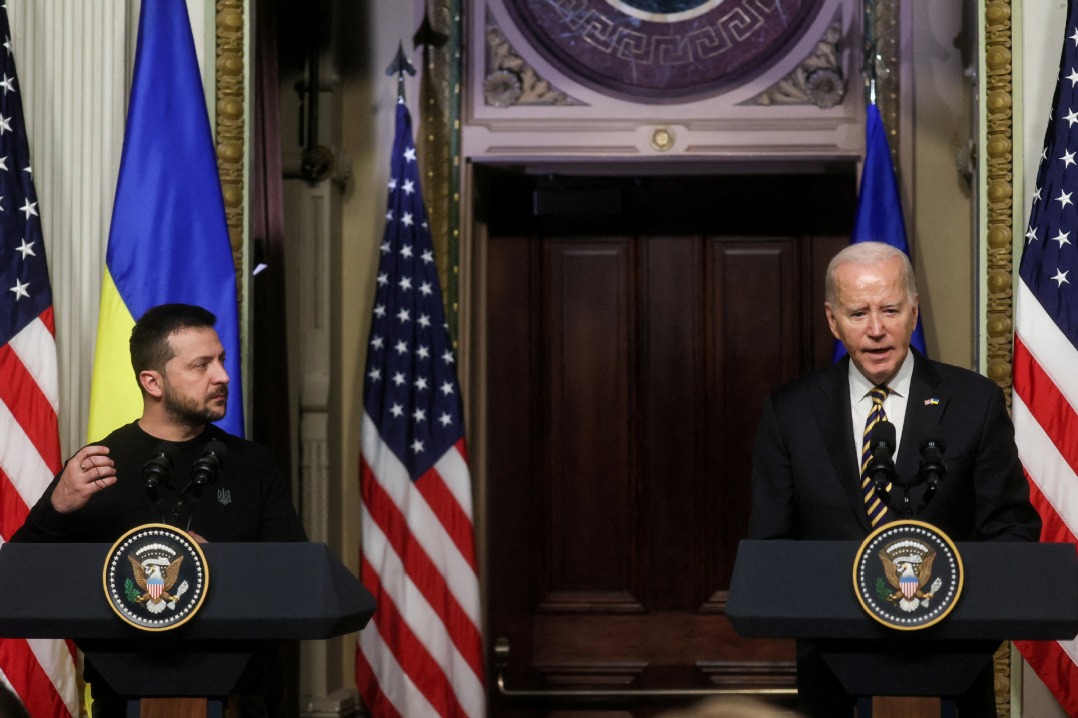Ambassador urges further cooperation
By Satarupa Bhattacharjya | China Daily | Updated: 2019-06-18 09:28

India, China have much to gain by sharing experiences, practices and technologies
There is scope of further cooperation between India and China on some major international issues, with the two countries facing similar challenges, Indian Ambassador to China Vikram Misri indicated to China Daily during an interview in Beijing on Friday.
The interview covered a range of topics related to India-China relations.
While responding to a question on the potential for cooperation on climate change and promoting globalization, Misri said specific challenges may be different for the two countries, but broadly the challenges emerge from the same areas.
"We both need an enabling environment domestically as well as externally that allows us to focus on the growth imperatives and on the most important needs in terms of health, education and employment for our peoples," Misri said.
China and India make up 40 percent of the world population of around 7 billion.
"We share a number of views on the need to preserve multilateralism and obviously we also need to reform multilateralism or multilateral practices in certain areas but keeping in mind the larger developmental imperatives of our people," he said.
India and China have much to gain by sharing notes and experiences, practices or technologies in order to combat climate change and also raise their voices from the perspective of developing countries in international forums, he added.
Like China, India is dependent on coal to meet a lot of its energy requirement. But as countries looking to play larger roles in world affairs, they have the opportunity to take the climate campaign forward, even as the United States has withdrawn from the Paris Accord, analysts say.
In the interview, Misri said India is working with China to strengthen international mechanisms such as the United Nations Framework Convention on Climate Change, "to seek to preserve the interests of our respective populations in this regard".
Energy security, he said, is a field where cooperation "is feasible even purely on the bilateral front and this is being explored between the two sides now". He did not give details, adding that the dialogue had just begun.
On counterterrorism, he said the need to join forces is apparent.
India has unique challenges in this regard and it has maintained "a steady and close dialogue and interaction with our Chinese interlocutors".
"We've seen progress in recent years and I imagine that we will continue to work on this front with our Chinese friends," Misri said.
As India and China endeavor to raise living standards, he added, preserving peace along the border and in the region is important to both countries.
A military standoff had brought India and China dangerously close to war in 2017. But relations appear to have improved since.
Are relations guided by pragmatism or has mutual political trust increased?
"It's an interactive process," Misri said. "There are obviously also certain differences between us, but I think on the whole, we have done a fairly creditable job of addressing and managing our differences."
He said sustaining this management of differences contributes to an extent in building trust, which in turn helps both sides to engage on more difficult areas of the relationship.
With Indian Prime Minister Narendra Modi's recent reelection, what is the expected trajectory of relations with China going forward?
Misri said Beijing's welcoming of Modi's reelection augurs well for a smooth transition into the work of the new government in New Delhi.
Strategic communication between the two governments has increased considerably, especially since the leadership summit in Wuhan, Hubei province, in 2018, he said. Modi has invited President Xi Jinping for a second edition of the summit in India.
It is going to be the centerpiece of India's engagement with China this year, Misri said.
On bilateral trade, Misri said while it is set to cross $100 billion in future, the deficit on India's side is between $58 billion to $60 billion.
"That kind of deficit is not economically sustainable, and it can also become politically sensitive if we don't take steps to address the deficit."























